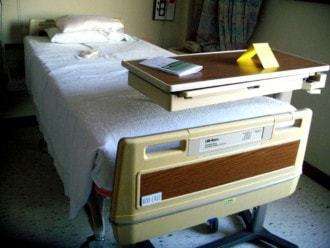It seems as if an existing regulation or protective law is marked for repeal on a daily basis. While federal legislation is currently at the forefront of everyone’s minds, there are numerous state mandates on the chopping block, too. One such regulation in Florida, known as CON, may soon be a thing of the past, making it much harder for poor or rural patients to receive high-quality care.
As the law stands now with the CON (or certificate of need) regulation, the state of Florida must approve or deny requests to build hospitals and nursing facilities. The state must also issue approval for existing facilities to add more hospital beds. A determination has to be made whether the community in question has a need for this expanded health care.
The purpose of the regulation is to ensure that all communities have equal access to health facilities like hospitals and hospice centers, regardless of income. It puts limits on how many beds are allowed to be in a particular area, which means there’s an equal playing field for patients who need hospital beds.
According to the FDA’s Center for Devices and Radiological Health, approximately 2.5 million hospital beds are in use throughout the United States. But if this regulation is repealed — which Republican lawmakers are pushing for — the determining factor about who is able to secure these beds will likely be financial means.
Opponents of the repeal are worried that doing away with state approval will have a drastic impact on quality of care for disadvantaged patients. Companies will likely want to build their facilities in wealthier areas because patients will be more likely to have private insurance plans, which end up paying more to facilities than Medicaid plans. They worry that new hospitals may intend to treat only those patients who can afford to pay full price.
Another worry is that if facilities don’t need approval to open, the number of nursing homes and hospitals could explode. This could easily lead to unfilled hospital beds and a lack of revenue, which would affect the quality of care. When facilities lose money, the upkeep of facilities falls by the wayside, and organizations quickly become understaffed. This could be disastrous for facilities that help Medicare and Medicaid patients, which already have much lower payouts than homes that cater to wealthier patients.
“Repealing CON could create a two-tiered health system in Florida,” said lobbyist Clint Shouppe. “One for patients with good-quality insurance and one for Medicaid and charity care patients.”
There’s certainly a precedent for their concern. Just a couple of years ago, lawmakers in Indiana had to legally suspend nursing home construction after its repeal of CON laws caused the number of new facilities to skyrocket.
Not all Republican legislators support the repeal, either — at least, not in its entirety.
Rep. Shawn Harrison, R-Tampa, stated, “I believe what we have here is a bill that is very well intended and will work indeed for hospitals, but it doesn’t appear to me that there is any evidence in record that it will work for nursing homes or hospices. We need to be very careful with how we deal with our most elderly and frail.”
Still, a proposal for ending Florida’s CON laws won support in the House; there’s a similar proposal being put forth in the Senate. Concerned residents are hopeful that, unlike in other recent repeals, there will be a better health care system ironed out to take the regulation’s place if the repeal does occur.


